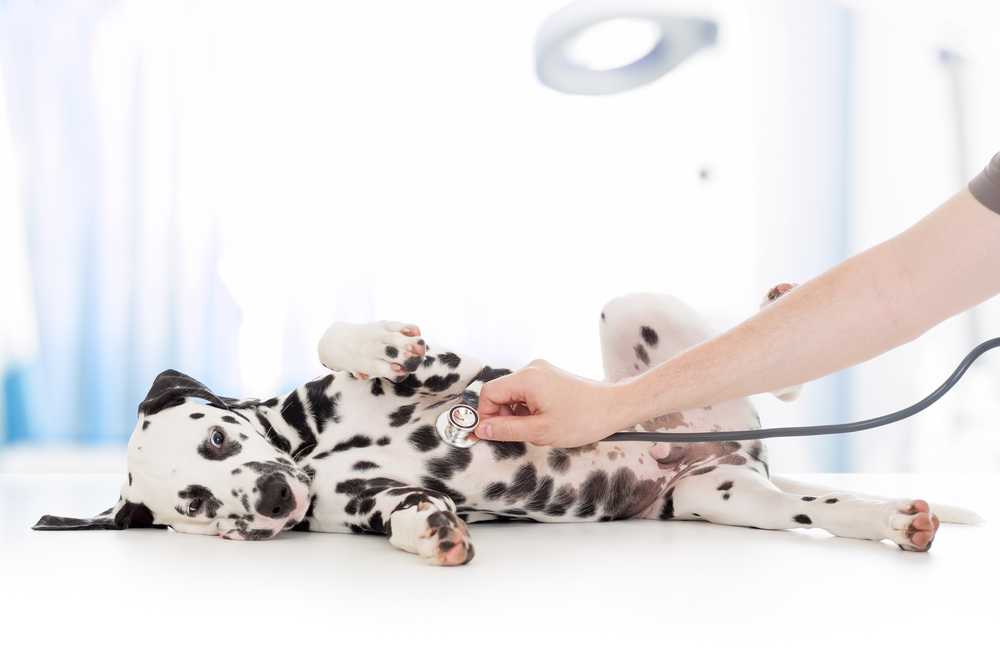If you love your dog like I do, the idea that she won’t be around for the rest of your life is excruciating. I can’t make her live forever, but I can help her live the healthiest, happiest life possible for as long as I have her.
Years ago, it was not uncommon for a dog to live for ten years and die of some unknown disease because we honestly didn’t take very good care of our dogs. We didn’t know about preventing doggie cancer, or the importance of vaccinating against anything other than rabies and maybe distemper or mange. Dogs saw the vet only when there was a problem that couldn’t be treated at home and they ate what we did for the most part. Table scraps were a dog’s main dietary staple and no one knew to pick out the onions, grapes, raisins, or chocolate chips.
Today, we know dogs shouldn’t eat table scraps and they really do need to see the veterinarian regularly, just like us. We know many dogs suffer from joint problems, arthritis, pain, and other ailments that require prevention and treatment. We know they should have their teeth cleaned to prevent gum disease and their ears cleaned to prevent infections. We know anal glands sometimes get clogged and toenails need trimmed so they don’t have pain when they walk. It seems taking care of a dog isn’t as effortless as we once thought. It can be a lot of work to keep your dog healthy!
When you bring home a new baby, things are stressful but you often have friends and grandparents there to help you along and there are all those What to Expect books to read the doctor mostly tells you what needs to be done every month and when you need to bring the baby back in for a checkup again. The baby cries, and you learn to check for the usual problems and after a few months, the whole parenting thing becomes more familiar.
But when you bring home a new puppy, there’s no support team waiting to help out. A new dog can be every bit as much work as a new baby but figuring out how to be a good pet parent isn’t quite as intuitive. The dog may bark or whine, but he’ll never say “walk, food, water, or belly rubs”. You’ll need to learn to interpret dog-language and he’ll need to learn to understand a few human words before you both start to understand each other. Not only will you be responsible for a helpless living being, you’ll need to learn to “speak dog” and learn how a dog’s body works, what he needs, and how those needs are met. You can’t burp him when he has a belly ache, and you may not even be sure a bellyache is his real problem!
Suddenly, Google and the Veterinarian’s office are your best friends and you find yourself typing “why does my dog eat poop?” into a search engine at 2 AM. You start to worry about strange things like cocoa shells in the mulch and the smell of puppy feet. At first, you find yourself tripping over the new dog and constantly wondering what he’s up to, but then you both seem to find your natural balance and you get used to having a fur-baby underfoot and he learns that sneaking socks out of the laundry basket upsets his human, and obeying house rules really is the best way to live a happy life (most of the time).
Things settle down, and you start to realize this dog is now ingrained very deeply in every aspect of your life. You rush home from work to spend time with the dog because you know he’ll be so excited to see you again. Without thinking, you take a step back from the kitchen counter before moving to the right or left to avoid tramping on the dog’s tail. You don’t mind the fact that you’ll probably never use the bathroom alone again. And you realize you’re a full-blown, honest-to-goodness pet parent.
That’s when life starts getting flavorful and rich. Your dog enhances your life and you enhance his. And you start to realize you are the only voice your dog has. You are his advocate, his protector, and his provider. And you are responsible for his health and well-being- which can be a scary thing. But caring for your dog’s health doesn’t take an advanced degree in rocket science. It just takes a big heart, a little research, and some common sense.
Caring for Your Dog’s Ears
Did you know your dog is more likely to visit the veterinarian for an ear infection than for any other condition? Especially if you love a floppy-eared variety dog, ear care is an essential part of caring for your fur baby.
Your dog’s ears aren’t like your own. They take a 45 degree turn before reaching the inner ear and this can trap dirt, debris, wax, bacteria, moisture, and even yeast in the ear canal. When this happens, your dog doesn’t hear very well and may scratch at his ears and shake his head to try to dislodge the blockage. And like a bad itch he just can’t quite reach, he won’t stop until it feels better- which can result in serious damage to his ears.
You’ll need to clean and inspect his ears regularly to keep him healthy.
Caring for Your Dog’s Teeth
Just like with people, poor dental care can lead to all kinds of health problems for your dog. Heart disease, abscesses, gum disease, tooth decay, pain, and infection can all occur from poor oral hygiene.
You dog will need to have his teeth checked by a veterinarian and will require professional teeth cleanings at times to keep his mouth healthy. Brushing his teeth and caring for his gums will help keep his mouth healthy, as will feeding him the right dog food. He may not like you messing with his mouth, but it’s necessary for his health.
Reducing Inflammation and Supporting Your Dog’s Joints
Dogs are rough on their bodies. They jump, run, paw and scratch all day long. This puts pressure on the joints and can result in injuries, deterioration of the healthy joint structure, and the ligaments that hold bones in place. Dogs get arthritis, too, and because they don’t live as long as we do, even “young” dogs can experience painful symptoms of inflammation and joint problems.
To help keep your dog healthy, avoid feeding him foods that are known to contribute to inflammation, like grains, processed foods, and unhealthy protein sources. Talk to your veterinarian about feeding your dog a Biologically Appropriate Raw Foods Diet or following the Alpha-Prey Diet model.
Make sure your dog is getting plenty of OMEGA oils to aid in digestion and reduce inflammation and boost his immune system.
There’s Magic in Your Touch
One of the best things you can dog for your dog is to pet him. I know it sounds simple, and maybe even a little silly, but the human touch is very powerful. It helps lower his blood pressure, releases “happy hormones” into his system, transfers bacteria to his fur in small quantities so his immune system can provide antibodies, and just feels good.
Making physical contact with your dog also helps balance the electrical system in both your bodies, and is beneficial to both you and your dog. We’ve long known there are many benefits to caring for a dog- mentally and physically.
Keeping your dog healthy so he’ll be around for years to come is part responsibility and part privilege. To think we are trusted to care for such gentle, loving, and generous souls is overwhelming at times and often humbling. Caring for your dog may benefit you both, but I do believe we humans get the better end of the deal overall. After all, the love and joy a dog brings into our lives is priceless.
This Post Was Sponsored By The Fine Folks At TruDog:





 Toledo, United States.
Toledo, United States.